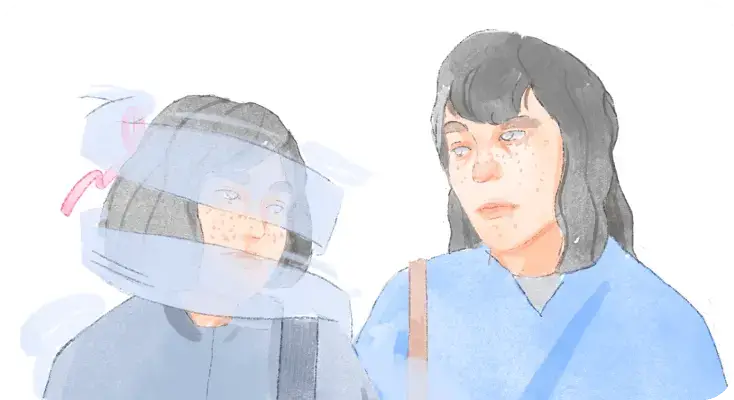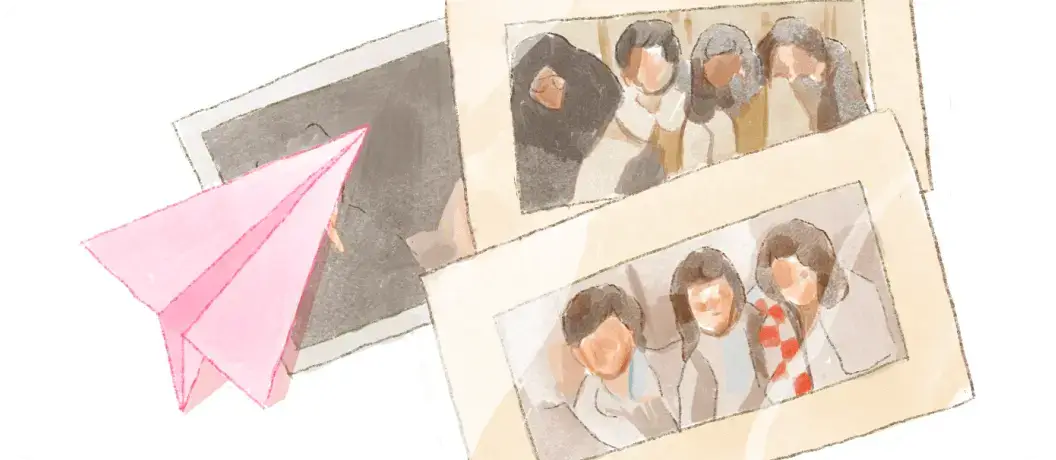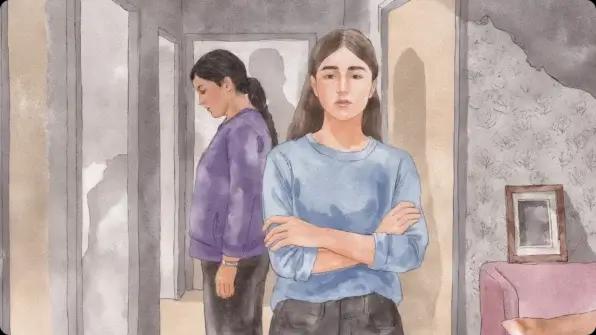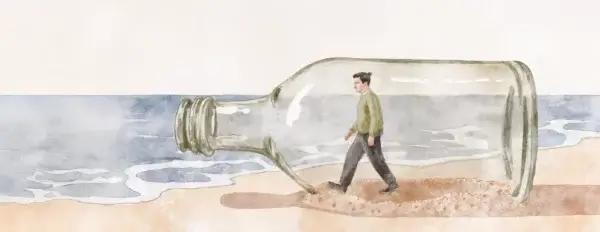Think back to your very first memory. When have you felt like life’s little observer? Maybe you remember the mumble-jumble of a family gathering? Or how fun was it to play with your favorite toy?
For most of us, these childhood memories start cropping up around the age of three or four. But is there anything before this age that we can recall?
This phenomenon, aptly named “childhood amnesia,” makes us collectively tilt our heads and go, “What was I up to before preschool? And why don’t I remember my early childhood?” And why can someone not even remember things from primary school?
“Is it normal that I can’t remember my childhood?”
You might start with this question. Actually, it is more common not to remember anything about your childhood than to remember everything about it. Young kids and babies are always learning, but they do not remember things for very long.
Factors that influence why we can’t remember our childhood
In short:
- Childhood trauma: some adverse childhood events that might have led to trauma
- Normal brain developmental factors that we have when our brain evolves with age
- Neuroplasticity: brain plasticity can lead to the rearrangement and pruning of neural pathways, resulting in the loss of childhood memories
- Language: young children often lose preverbal memories because they can’t reinforce them with internal monologue
- A sense of self-awareness: self-recognition and self-awareness are vital for memories that aren’t developed at an early age
- Social norms, family dynamics, and cultural practices also shape our memories (e.g., children from cultures that value uniqueness have more vivid memories than those from cultures that don’t)
1. Childhood Trauma
Strong emotional experiences are said to be the ones that stay with us.
The ability to manage and regulate emotions is largely a learned skill honed through childhood and adolescence.
If emotional regulation was a struggle in youth, particularly due to childhood trauma, the brain’s mechanisms for coping with or processing these emotions might inhibit access to the traumatic memories.
Some findings show that trauma in childhood may have long-lasting effects on the parts of the brain that support explicit memory (a type of long-term memory that’s concerned with the recollection of facts and events)
So, yeah, traumatic events during childhood can have a profound impact on how and what we remember. It can also lead to dissociative amnesia.
If the emotional content of our early experiences was too overwhelming, it could result in the repression or distortion of these memories, making them difficult to retrieve accurately.
- Repression. It’s considered a voluntary act of forgetting distressing memories, which has sparked both curiosity and controversy. Many people “repress” trauma without even realizing it because they don’t want their painful past memories to affect them. However, this defense mechanism has its critics and doubters.
- Trauma Denial. Another psychological theory states that when you repress memories, they “go” into your subconscious. When you deny trauma, your reality is split in two. Often, denial—the active refusal to acknowledge painful events—shows up strongest right after a traumatic event. It is important to remember that how different people react to trauma can be very different. For some, denial may be a way to deal with things right after a traumatic event. Not everyone who goes through a traumatic event will deny it or the process of repressing memories. Also, how it changes consciousness is complicated and not fully understood.
2. Brain developmental factors
Imagine your brain as a bustling construction site. In early childhood, this gray matter (which makes up the outermost layer of the brain) undergoes rapid development and reorganization.
The hippocampus and prefrontal cortex (brain areas) have roles in episodic memory. Their interactions are crucial for learning and remembering events, and their development during early childhood carries the responsibility of storing long-term memories.
Because these parts of the brain are not fully developed when we are born, the brain cannot store long-term memories until they are. This may be a big reason we cannot remember things from childhood.
Memories formed in early childhood might not follow the same processes as those formed later in life. The immaturity of cognitive functions in children, such as language and narrative ability, may limit the formation and storage of cohesive and narrative-based memories.
Additionally, young kids are not very good at understanding time. They still have a few years to go before they fully understand clocks and calendars. It makes it hard to connect an event to a specific time and place.
They also don’t have the vocabulary to describe the event. Because of this, they can’t create the kind of cause-and-effect narrative that underlies lasting memory.
But there are other possible reasons too. For example, someone who might experience emotional neglect or childhood trauma may not even remember school times.
3. Neurological changes
There is something called “neuroplasticity.” This is the brain’s amazing ability to change its structure by making new neural connections throughout life. But for kids’ brains, it works the best.
However, this same plasticity can also contribute to the rearranging and potential ‘pruning’ of neural pathways. It may result in the loss of absence (no) childhood memories.
Repetition and reinforcement also play their role. We can think of memories as a path in the woods. It remains a neuron’s path, but once it is not used, the grass will take over if it is walked consistently.
And if you repeatedly think back on a memory, that memory is more likely to be retained over time. If you don’t think about your childhood memories often, they may fade away.
“If you never use a particular memory, the synapses responsible for storing it may be used for something else,” says psychologist Patricia Bauer.
4. Psychological Factors
To make autobiographical memories, you should have a sense of self-awareness that helps you distinguish yourself from others.
Researchers have found that babies younger than 18 months have trouble with this: if you put paint on their noses and then let them look in the mirror, they don’t recognize who is there.
In contrast, 24-month-old kids will try to wipe off the paint. By this age, they have already developed self-awareness and even some sense of self-worth. In other words, this means that people can remember things about themselves from around that time.
Additionally, language is important. The most likely thing that will happen when you try to remember something is that you will use words to picture what happened. In other words, by using internal monologue.
Young children have big problems replaying self-talk in their brains; they don’t yet know the language well enough to speak. They lose their preverbal memories (the earliest, not verbal, but sensational memories) later on because they were not able to reinforce them with inner speech in time.
5. Environmental Factors
The richness of our childhood memories often hinges on the significance of the events we encounter. If our early years did not have many “milestone” events or were relatively ordinary, we might not remember many emotionally impactful moments.
Also, cultural practices, family dynamics, and societal norms can influence not only our experiences but also our memories.
For example, people from cultures that value family stories may be better able to recall their childhood than people from cultures that don’t.
In 2009, Peterson, Qi Wang of Cornell, and Yubo Hou of Peking University found that kids in China did not have as many memories as those in Canada. According to them, this finding might have something to do with culture: Chinese people value uniqueness less than North Americans do, so they do not spend as much time highlighting specific events in someone’s life.

What is childhood amnesia?
In the labyrinth of the human mind, certain passages remain dark, mysterious, and yet critical in shaping us. One such corridor, hidden in the mists of memory loss, is the phenomenon known as infantile or childhood amnesia.
In a nutshell, childhood amnesia is the inability of adults to recall events from early childhood—the formative years before the age of around 3–4.
Also, it is a major theory that explains why many people do not remember anything from their childhoods.
One of the ideas is that the brain grows very quickly in early childhood, with synapses forming at a very fast rate.
However, the brain is not yet fully developed, and the prefrontal cortex, responsible for aspects of long-term and short-term memory and self-awareness, lags behind. It may contribute to the memory gaps of childhood amnesia.
What 20- and 70-year-olds can remember about their early childhood is pretty much the same, even though decades have passed, researchers say.
Of course, everyone has a different memory of their childhood. Someone has really vivid childhood memories.
An interesting hypothesis has been put forward that the retention of childhood memory is associated with ambidexterity. A paper published in the journal Neuropsychology suggests that people who use both their right and left hands equally well (ambidextrous people) remember infant experiences better than right-handed people.
So, the question arises: Why do some people have vivid memories of their childhood? While others can’t recall their early experiences?
Memory retrieval techniques for those who can’t remember childhood
Therapy options
Losing early memories can be very upsetting, but getting professional can be a powerful way to access forgotten or repressed memories.
Therapies like psychoanalysis may be really helpful for accessing those memories and working through forgotten or repressed memories.
Other therapy approaches, particularly trauma-focused therapies like EMDR and narrative exposure, can offer a light to those facing the gloom of memory loss.
These approaches aim to bring implicit memories into explicit awareness and integrate them into your experience.
Journaling exercises
Self-guided practices, such as journaling or undertaking a personal life review, can also be beneficial. By keeping track of events in the present and the past in a planned way, you can slowly bring back memories that you thought were lost, even from your childhood.
Going back to places from childhood
There’s something magical about returning to the places where you grew up. Being in familiar surroundings can trigger vivid memories from your childhood, whether it’s your old neighborhood, school, or playground.
Take a trip down memory lane and immerse yourself in the sights, sounds, and smells of your past; you might find that it sparks long-forgotten recollections.
In summary
There is usually nothing to worry about when you forget things from your childhood, and you can bring back some memories by triggering them with therapy or journaling.
Childhood amnesia isn’t a conspiracy to keep our earliest secrets locked tight, but it certainly leaves us puzzled. This digital journey through the maze of our childhood gaps is interesting and has personal value because it helps us understand the ups and downs of our formative years.
When a child experiences trauma, such as abuse, neglect, or witnessing violence, it can profoundly affect their memory. Traumatic events have the power to alter a child’s memory, overshadowing happy recollections with painful ones.
In some cases, survivors may feel as though they’ve lost their entire childhood, as the trauma eclipses the memories of happier times.
However, if memory loss is causing distress or affecting your well-being, don’t hesitate to reach out for support. A trained therapist can help you navigate through your memories and provide guidance on coping with any challenges that arise.
Disclaimer
This article is for general informative and self-discovery purposes only. It should not replace expert guidance from professionals.
Any action you take in response to the information in this article, whether directly or indirectly, is solely your responsibility and is done at your own risk. Breeze content team and its mental health experts disclaim any liability, loss, or risk, personal, professional, or otherwise, which may result from the use and/or application of any content.
Always consult your doctor or other certified health practitioner with any medical questions or concerns
Breeze articles exclusively cite trusted sources, such as academic research institutions and medical associations, including research and studies from PubMed, ResearchGate, or similar databases. Examine our subject-matter editors and editorial process to see how we verify facts and maintain the accuracy, reliability, and trustworthiness of our material.
Was this article helpful?





